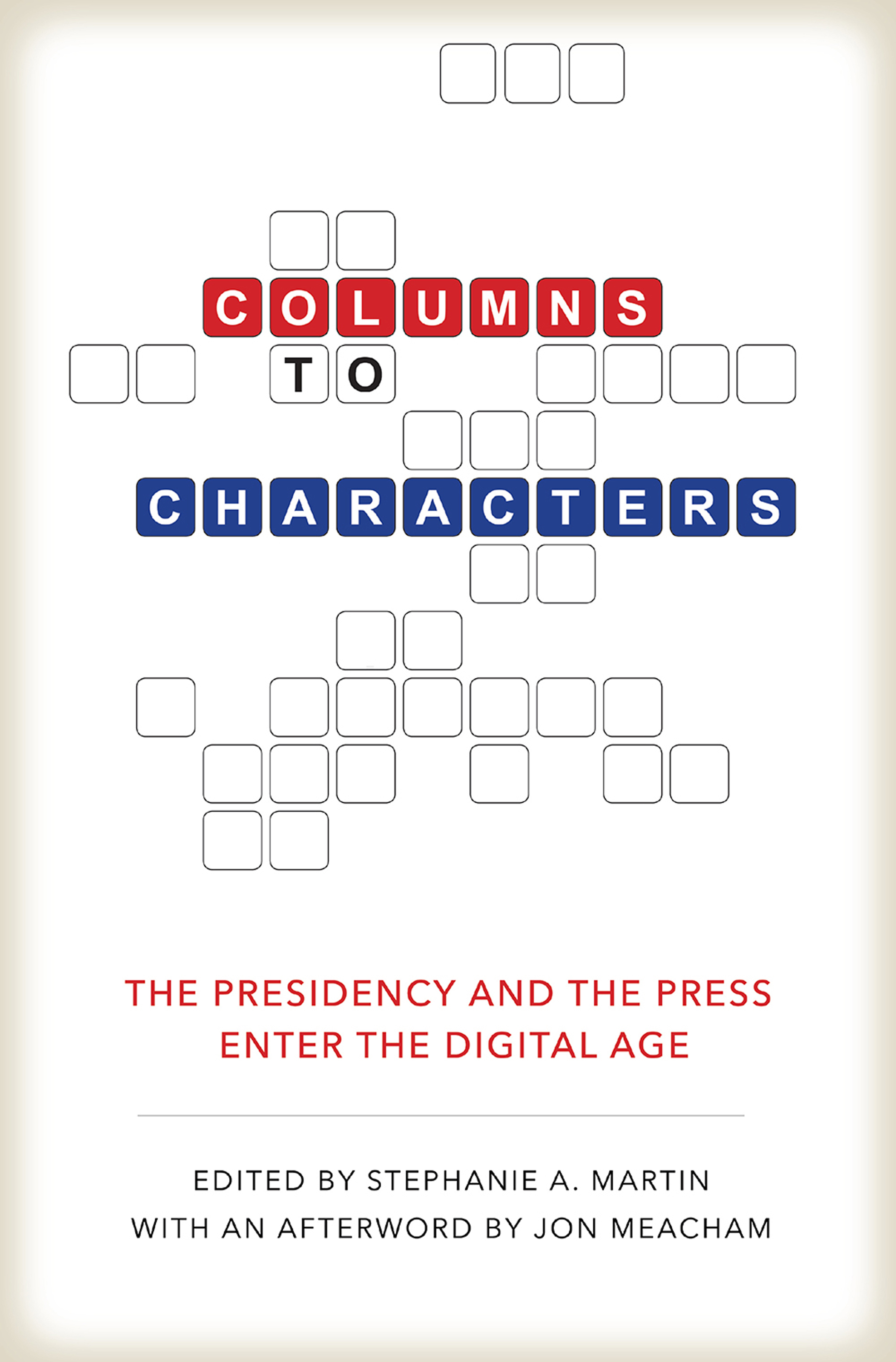SMU professor’s book explores how relationship between president & press has evolved in digital age; death of the “rhetorical presidency”
Evolving communication methods bring novel, worrisome implications, says book by professor of communication and public affairs Stephanie Martin.
By Kenny Ryan
SMU News

Stephanie Martin, SMU assistant professor of communication and public affairs, leads a cast of scholars and journalists in exploring the consequences and implications of this shift in their latest book, Columns to Characters: The Presidency and the Press Enter the Digital Age. Edited by Martin, the book published on Nov. 23.
“Will presidents remain accountable?” asks Martin. “Or will they find ways to only engage with those members of the public who already agree with them? That’s the question.”
Martin says this new model of presidents being able to bypass the press, known as the “post-rhetorical presidency,” is here to stay. The implications are already being felt.
“That lack of press access leads to suspicion, which leads to people listening to rumors, which leads to hushed conversations, which leads to the perception of poorly sourced stories that exacerbate the White House’s frustration.” Martin says. “Yet shoe leather journalism is stronger than it’s been in a decade, and some of the best journalism happening is being done by reporters outside the White House.”
Nine scholars and five journalists contributed to the 256-page book, which is expected to find use in university classrooms, but also makes for a fascinating read. The contributors are:
Peter Baker is a White House correspondent for the New York Times and a contributing writer for the New York Times Magazine.
Thomas DeFrank is a contributing editor for the National Journal and a former Washington Bureau Chief of the New York Daily News
David Demarest is the vice president for public affairs at Stanford University and a former White House communications director for President George H.W. Bush.
Stacia Deshishku is the deputy Washington bureau chief for ABC News.
George C. Edwards III is a University Distinguished Professor of Political Science and the Jordan Chair in Presidential Studies at Texas A&M University.
Roderick P. Hart is the former dean of the Moody College of Communication and Shivers Chair in Communication, and professor of government at the University of Texas at Austin.
Rita Kirk is the director of the Cary M. Maguire Center for Ethics & Public Responsibility and a professor of communication in the Division of Corporate Communication and Public Affairs at SMU.
Martha Joynt Kumar is a professor in the department of political science at Towson University. Since 1975, Kumar has held a press credential to the White House briefing room – the only academic with such access.
Stephanie A. Martin is an assistant professor of political communication in the division of corporate communication and public affairs at SMU.
Jon Meacham is the executive editor and executive vice president at Random House, a former editor-in-chief of Newsweek, and a contributing editor to Time magazine.
Jennifer R. Mercieca is an associate professor of communication at Texas A&M University and an author or editor of two books with a third book forthcoming on the rhetoric of Donald Trump.
Robert W. Mong is a former editor of the Dallas Morning News.
Tony Pederson holds the Belo Distinguished Chair in Journalism as a professor of journalism at SMU.
Stephen A. Smith is a professor emeritus of communication at the University of Arkansas and served as a member of the Arkansas House of Representatives and an executive assistant to former governor Bill Clinton.
###
A nationally ranked private university with seven degree-granting schools, SMU is a distinguished center for teaching and research located near the heart of Dallas. SMU's 11,000 students benefit from small classes, research opportunities, leadership development, international study and innovative programs. The University is strengthened by its partnership with the Dallas region, a global center of commerce and culture. SMU students, faculty and alumni are changing the world through their chosen fields, civic engagement and service to society.
22027-nr-12/4/17-kr